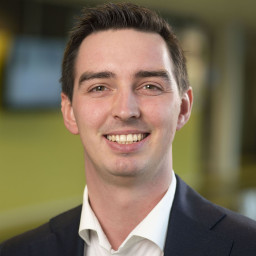
DIGIREAL lab coordinator
I grew up as a kid that was playing with Lego nonstop, making dreamy cities, castles, cars and of course bikes. Due to the jobs of my parents, I lived in Kenya and Chad for several years during my childhood. This experience strengthened my belief in the importance of understanding your environment and the societal system towards the people living in that environment, which gave me an advantage when studying geography in high school. When I was 17, my old hobby of designing cities, and my understanding of geography merged in my studies, urban planning.
During my study, I worked on several European projects at ARCADIS that focused on creating new business models for climate adaptation and mitigation. There I learned that climate adaptation is more of a political and so support based problem than a technical problem which steered me in the direction of participatory planning that was followed up by a study on the use of social media for participation and a publication on circular economies at the age of 22.
After my bachelor, I continue with my master’s in urban geography that focuses on the sociological trends that were influencing cities today and will tomorrow. A city would be nothing more than a pile of bricks if it were not for the people living in that city. For my thesis, I’ve investigated how people’s individual believes, and their social support system and geography influenced tolerance. This was right after the election of Donald Trump, which impacted my understanding of our society in a great deal. Based on my research, I proofed the importance of having a support system to uphold your beliefs. If you don’t have the people around you with the same views, you are very unlikely to have and share them. I feel that this is true for almost every belief system, whether it believes in climate change, active mobility equality or tolerance.
During my thesis, it all came together when I started working for METAMORPHOSIS at Breda University of applied sciences. A project that develops and implements bottom-up measures with children to achieve lasting behavioral change to create child-friendlier neighborhoods. Later on, I became a project leader for Public Play Space, a project that explores the potential of Games for participatory place-making. A year later I am also leading Dignity, a project that investigates with end users the impact of digitalisation on mobility and the necessities to keep it inclusive. In my job, my life experience slowly came together, the play element of building bikes and playing games, the importance of understanding a societal system, the need for climate adaptation and the importance of changing a system with people to achieve lasting change.
Last year (2019) I was in India for a working visit. This was my first time in India, and I was intrigued, shocked and anxious due to my realisation that creating a sustainable society, of which mobility is a huge segment, is incredibly urgent and the most critical challenge of my generation.
I’m not saying METAMORPHOSIS, Public Play Space or DIGNITY are the answers to this challenge but what it is, is an integral approach to change a system systematically to have the support base for the technical solutions and the will to do it. I am still young, I’m still figuring out life, but what I do know is that I want to be a contribution.
Not known